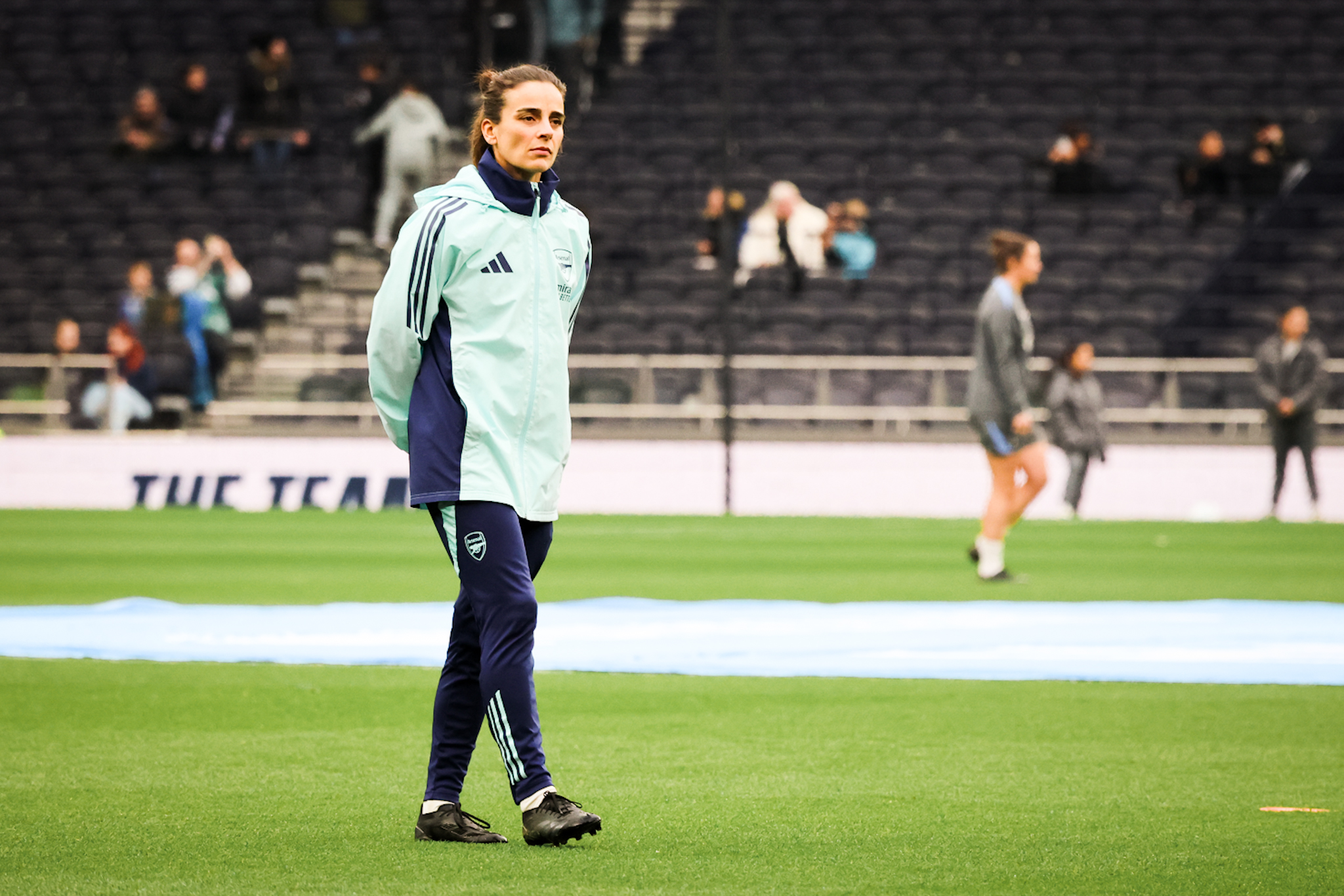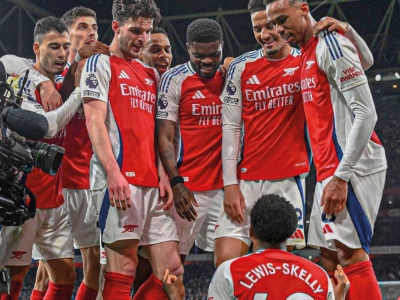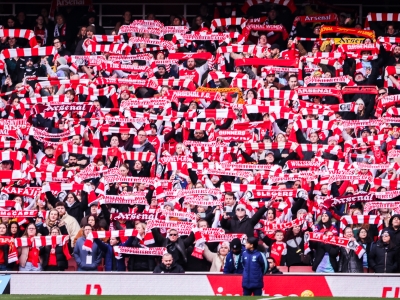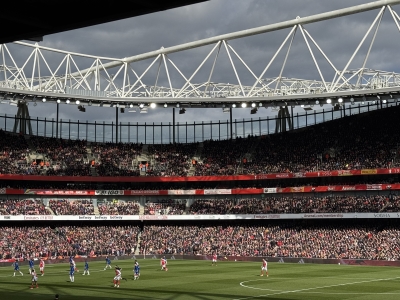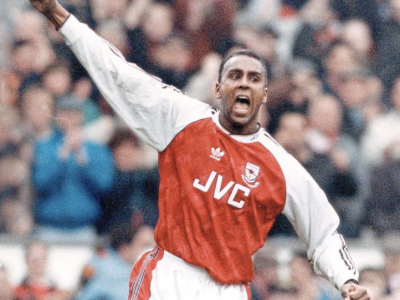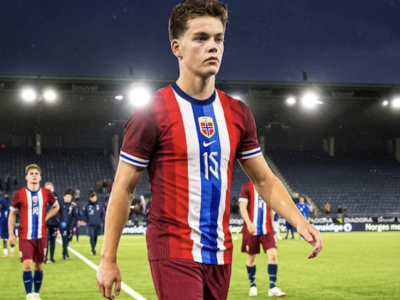Introduction:
As both a fan and a writer, following Arsenal Women has always been an emotional journey. Witnessing the team go through a rough patch is never easy, but the comeback is always truly rewarding.
Nothing encapsulates this more than what we’re seeing under interim coach Renée Slegers. She took an out-of-form, unconfident Arsenal side, whose start to the season had been disappointing, and transformed them into a team that now looks capable of facing almost anyone. The ‘Renéessance,’ as it’s being called, has been nothing short of remarkable.
What’s changed? It’s more than just tactical adjustments - it’s about confidence. Renée has given the players the freedom to excel, and it’s clear they’re playing with a newfound belief in themselves. The impact on the dressing room has been evident, creating an environment that prioritises positive mental health and unity. And then there’s the focus on the "margins." Arsenal used to find themselves on the wrong side of results, but now they’re doing the small things right to ensure they're on the right side of victory.
While the real test may still lie ahead, it’s hard not to feel a sense of pride and excitement for what’s to come. This team has shown incredible resilience, and with Renée leading the way, the future feels full of promise.
What is driving Slegers' Arsenal team to perform at such an exceptional level?
Renée’s Squad Management:
In Renée Slegers' first six matches at the helm, Arsenal have won five and drawn one, scoring an impressive 19 goals while conceding just 2.
By comparison, the team's last six games under Jonas Eidevall yielded only two wins, two draws, and two losses. This stretch included a crushing 5-2 defeat to Bayern, a lacklustre draw with Everton, a defeat at the Emirates to rivals Chelsea, and a frustrating draw with City in a match they should have won.
Slegers has relied on a core group of just 19 players across these six fixtures, consistently fielding a largely unchanged starting XI. The lineup that featured in their recent derby day triumph appears to be her preferred choice, and with good reason—the squad functions cohesively, with each player executing their role effectively. Analysing each individual’s contributions highlights that Slegers' tactical vision is clear and the players are executing it with precision.
Arsenal’s Strongest Starting XI:
Although Renée hasn’t fielded the exact same team each week, we’re starting to gain insight into her preferred starting XI and tactical approach.
Daphne Van Domselaar:
Daphne Van Domselaar has emerged as Renée Slegers' clear first-choice goalkeeper, featuring most prominently between the posts under her leadership. Van Domselaar's performances have been exceptional, highlighted by a crucial save in the recent victory over rivals Spurs. Under Renée, Arsenal have displayed impressive defensive solidity, keeping clean sheets in four of six matches and conceding only two goals. This marks a significant improvement compared to the defensive vulnerabilities criticised during the early part of the season under Jonas’ tenure.
Emily Fox:
A standout performer this season, particularly under Renée Slegers, Fox has proven to be an invaluable asset to the team, starting every single match. Combining attacking flair with defensive reliability, her contributions in front of goal have been pivotal. Notably, she scored the first goal of the Renée Slegers era, with her overlapping runs and late surges into the box playing a crucial role in breaking down defenses and enhancing Arsenal’s attacking play. Fox’s relentless work rate and boundless energy have been instrumental in the resurgence of this Arsenal side.
Leah Williamson and Steph Catley:
Arsenal’s need for a left-footed centre-back has been a hot topic, with various defensive partnerships tested, particularly earlier in the season. Recognising the need for defensive improvement, Arsenal seems to have found a strong pairing in Williamson and Catley. Williamson’s ability to step into midfield and deliver incisive passes through the lines has elevated the team’s link-up play and attacking potential. Meanwhile, Catley’s versatility and defensive solidity have been crucial in limiting goals conceded and maintaining control, even against counter attacking opponents. Her defensive strengths have also given McCabe the freedom to contribute more effectively in attack, further enhancing Arsenal’s overall balance.
Katie McCabe:
Like Fox, McCabe has thrived as an attacking fullback, with her recent improvement under Slegers playing a pivotal role in Arsenal’s success. Both fullbacks have developed strong connections with the wingers, frequently making overlapping runs to stretch opposing defences. McCabe, in particular, has shown notable growth in her confidence to drive forward with the ball and take on players—an area where she seemed more hesitant earlier in the season. This newfound assertiveness has significantly bolstered Arsenal’s attacking dynamics.
Kim Little and Lia Wälti:
The holding midfield partnership of Little and Wälti has been outstanding, with both players’ strengths complementing each other perfectly. Wälti’s tenacity in midfield has been crucial in winning back possession and thwarting counterattacks, providing a solid defensive foundation. Meanwhile, Arsenal’s emphasis on increased presence in and around the box has enhanced their attacking play, with seamless link-ups and dynamic movement proving key to breaking down opposition defences.
Frida Maanum:
Frida Maanum has emerged as a standout performer under Slegers, establishing herself as the ideal number 10 through her seamless partnership with both the midfield and forward lines. After considerable debate over who would fill this role— with even Mariona stepping in at times—Maanum’s intelligent movement and impactful goal contributions have revitalised Arsenal’s attacking play. Her well-timed runs into the box have significantly boosted the team’s goal-scoring threat, with Arsenal now far more proactive in taking shots compared to the early season under Jonas.
Caitlin Foord:
Caitlin Foord has been a dynamic force for Arsenal, showcasing her versatility and attacking prowess. Her ability to take players on with confidence has been instrumental in driving the team forward. Her link-up play with the fullbacks has been seamless, creating opportunities down the flanks and adding width to Arsenal’s attack. Additionally, Foord’s increased presence in the box has boosted her goal-scoring contributions, making her a consistent threat to opposing defences and a key figure in Arsenal’s offensive resurgence.
Mariona Caldentey:
Mariona Caldentey has been a crucial asset for Arsenal, with her exceptional passing range playing a key role in breaking down stubborn defences. Her vision and precision were on full display with the outstanding assist for Blackstenius’ goal against Spurs, a moment that highlighted her creativity and technical ability. Even when used off the bench, Mariona continues to make a significant impact, consistently influencing games and adding depth to Arsenal’s attacking options.
Alessia Russo:
Alessia Russo has significantly improved her goal-scoring record, becoming more confident in taking shots and posing a constant threat in front of goal. Beyond her finishing, her overall play remains exceptional, as she continues to be deeply involved in Arsenal’s build-up play. Her ability to link up with teammates and create opportunities makes her a pivotal figure in the attack, adding both creativity and goal-scoring ability to the team.
Other players with key roles:
Several players have taken on key roles within the squad. Beth Mead, rotating with Mariona Caldentey, provides an attacking threat off the bench. Kyra Cooney-Cross, while debated for a starting spot, is used to break down tougher opponents, winning the ball in midfield and transitioning Arsenal to attack. Stina Blackstenius has become a fantastic impact player, improving her goal-scoring ability with runs in behind the defense. Rosa Kafaji, another impactful substitute, has shown great potential, scoring in crucial moments. Lina Hurtig, though unlikely to start, can offer a strong set-piece threat and be used for rotation. Manu Zinsberger, likely rotated with Van Domselaar for weaker opponents, has shown improvement in her distribution under Renée. Laia Codina and Lotte Wubben-Moy provide defensive stability and are valuable rotation options.
The Future of Renée Slegers’ Arsenal:
The future remains uncertain, and Renée Slegers has yet to shed light on how much longer she intends to stay as manager. However, fans have quickly embraced her leadership, rallying behind her with enthusiasm. Her positive results and impressive performances have only strengthened the desire for her to remain at the helm, at least until the end of the season. Unless an unexpected permanent candidate emerges, it would be surprising if the club did not extend an offer to Slegers to lead the team through the remainder of the campaign.
For now, fans can savour this period and hope that the team's strong performances persist, especially as they navigate an unrelenting series of challenging fixtures.

